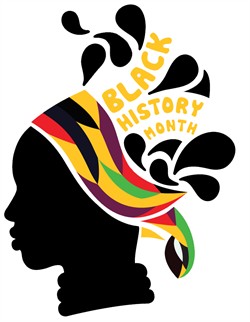In honor of Black History Month, let’s take a look at how racism
can have an effect on both physical and psychological health. How big of an
influence could racism and violence play on our physical and mental health and
what do we do about it? The emotional weight African Americans carry can have short-term
effects and long-term ones as well. With the recent and continuous reports of
shootings and killings of unarmed men and women, the scenes can be quite traumatic
to anyone, but what’s most unbearable is when those same unarmed men and women
look like you or a family member.
Research shows that EVERY minority group experiences some degree
of discrimination. People of color are afraid to bring up issues of racism and
its effects on their physical health. They are also reluctant to discuss the
issue with their mental health care provider because they are so used to being
invalidated by people who do not experience racism. The response to racism can
have a negative effect on their physiological and psychological behavior
resulting in Post-Traumatic Stress Disorder (PTSD) and other mental disorders
such as depression and anxiety. PTSD was often thought of as the effect of a
single traumatic event but now it can be a cause of an accumulation of
traumatization.
There have been connections to depression among people who have
not personally experienced racism but rather watched it on the news or read
about it. According to associate professor of psychology and brain sciences at
the University of Louisville, Dr. Monnica Williams, this may cause illness as
well. Symptoms to look for are anxiety, deep frustration, impaired judgment and
an inability to do daily routines.
Destigmatized communities have negative physical outcomes overall.
Within the black community the majority of health issues that tend to be
hereditary are diabetes, high blood pressure and heart attacks. An article from
Chris Weller suggests societal racism in this day and age can lead to anger and
an increase in behavior problems in teens and that racism is “an important
influencing factor in kids’ developing sense of self-worth.”
Racial discrimination anywhere, not only in the United States, is
harming and should be frowned upon. How do people sometimes cope with racism?
Cogburn suggests positive coping strategies; the challenging approach is to ask
yourself, “What can I do to change the way people see me or my group?” Avoid
taking negative approaches like feeling bad about yourself, being in denial, or
wanting to assimilate to what one may think is “normal.” Whether it is good or
bad, stereotypes can have negative consequences as well with the constant urge
to be accepted.
According to Science Friday
there is a virtual reality technology that allows people to experience racism,
to give people who don’t normally encounter these experiences a chance to “walk
in someone else’s shoes.” The reality of it all is clear; racism is alive and
well, however there are people in this world who have NEVER experienced it. So
how can they fully understand or sympathize with someone who is experiencing
this every single day? As Black History Month continues, I will end on this
quote, “Be the change you want to see in this world.” Seek help if need be and
continue to think positive and do positive even after this month has passed. So
go learn, and Behold Biology NSU!
Sources
1.
The Health Costs of Racism. Cogburn
C, Intagliata C, Wetsman N, and Williams M. Science Friday, PRI (Public Radio
International). Media. July 15, 2016
2.
Racism and Mental Health: the African American experience. Morris WR, Williams RD. Ethnicity and Health. 2000; 5(3/4):
243-268
3.
Racism Linked to Depression, Anxiety in Kids; Blacks, Hispanics,
and Asians at Highest Risk. Weller C.
Medical Daily; Healthy Living. September
23, 2013.
Author: Ronquelda C. Quillen
